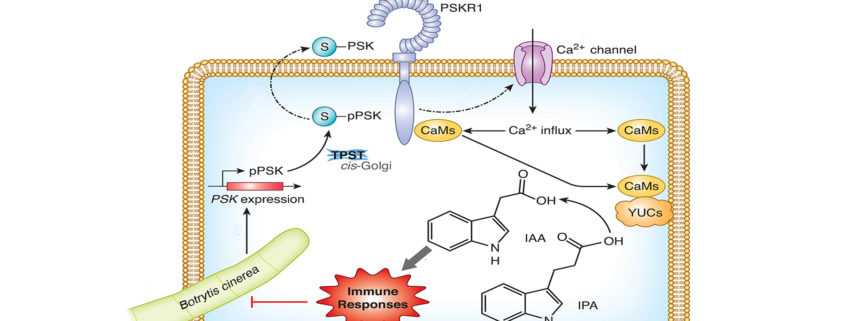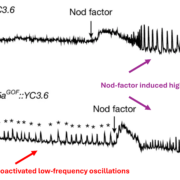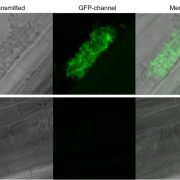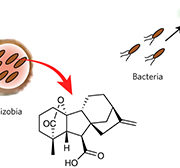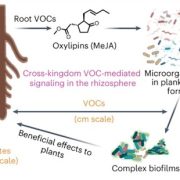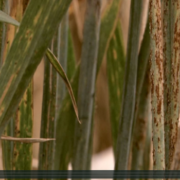Small Peptide PSK Induces Plant Immunity Against Botrytis cinerea
Zhang et al. show how PSK initiates Ca2+– and auxin-dependent immunity https://doi.org/10.1105/tpc.17.00537.
By Huan Zhang, Zhangjian Hu and Kai Shi
Background: During plant-microbe interactions, some small secreted peptides are secreted into the apoplast between plant cells as damage-associated molecular patterns (DAMPs), which are critical regulators of plant immunity. Typically, DAMPs are molecules that are recognized by specialized pattern-recognition receptors (PRRs) and activate plant immunity through signaling initiated by intercellular parts of PRRs. When the fungal pathogen Botrytis cinerea strikes, tomato-secreted plant phytosulfokine peptide (PSK) acts as DAMP to impart plant immunity against this pathogenic microbe.
Question: Due to B. cinerea causing billions of USD in crop losses in worldwide, we would like to figure out how this plant small secreted peptide (PSK) initiates plant immunity.
Findings: We found that biosynthesis, modification, and perception of PSK all are crucial for PSK-mediated plant immunity against B. cinerea. Upon PSK perception by the tomato PSK receptor PSKR1, cytosolic Ca2+ accumulates as a consequence of PSKR1-mediated calcium channel activation. Perception is dependent upon modification of PSK precursors via tyrosine sulfation and proteolytic cleavage. We further identified calmodulin as the calcium binding sensor that interacts with auxin biosynthesis enzymes known as YUCs, leading to auxin biosynthesis and initiating the auxin-mediated plant immunity signaling pathway against B. cinerea.
Next steps: Our research discovered a DAMP-initiated plant immunity pathway against B. cinerea dependent on PSK. Since orthologs of PSK precursors have been identified across the plant kingdom, it will be interesting to investigate whether the perception of PSK ligands by their receptors in other species uses a similar mechanism for regulating immunity to necrotrophic pathogens. Also, manipulation of peptide-induced defenses is an attractive disease management strategy that could potentially be used to enhance disease resistance in diverse plant species.
Huan Zhang, Zhangjian Hu, Cui Lei, Chenfei Zheng, Jiao Wang, Shujun Shao, Xin Li, Xiaojian Xia, Xinzhong Cai, Jie Zhou, Yanhong Zhou, Jingquan Yu, Christine H. Foyer, and Kai Shi. (2018). A Plant Phytosulfokine Peptide Initiates Auxin-Dependent Immunity through Cytosolic Ca2+ Signaling in Tomato. Plant Cell. https://doi.org/10.1105/tpc.17.00537.


